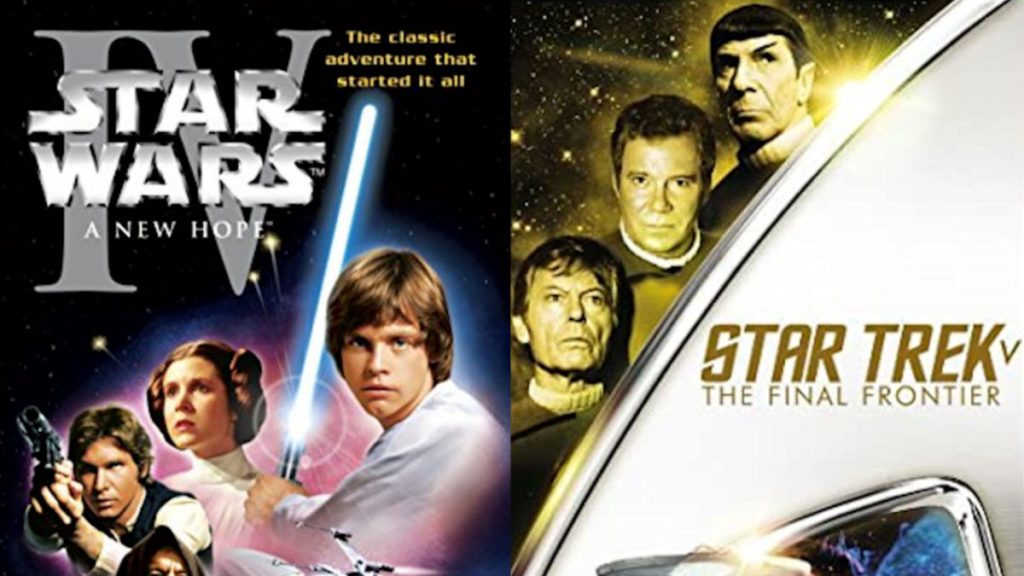On 15th May, I gave a presentation to the International Association of Jungian Studies on the Ukraine conflict. The recording does not include the discussion amongst participants, nor the multimedia (which were removed for copyright reasons). Nevertheless, the presentational part of the session is available at youtube:
Tag Archives: Mythology
Connecting to the unconscious through film
Star Wars IV vs Star Trek V

I will be giving an online session for the Kent Psychotherapy Network (KPN), on 29th January 2022, 10:30am to noon GMT. It is open to anyone for £10 (KPN’s fee) and will not be recorded, due to using copyrighted material (under ‘fair use’ rules).
Continue readingPhD Research into Religious Tolerance

Help wanted!
For the past few years, I have been pursuing some PhD research into the relationship between personality and mythology. The overall aim is to find ways of promoting religious tolerance. It is based on Jung’s analytical psychology and is now in the final stretch.
I would appreciate your help by completing four online questionnaires, which will take about 30 minutes in total. When you have finished, there will be a report in the form of a PDF file, or Ebook, or you can read the results online. There is more information about the research on the page that introduces the questionnaires, at https://research.myers.co. Thank you, in advance.
If you have any questions or comments, please use my contact page (above).
Journalistic Myth-Making Live
 My jaw dropped when I started reading The Independent’s review of the Mansion House speech yesterday morning. On the front page of their website they showed a picture of George Osborne, the UK Chancellor of the Exchequer, in full flow delivering his speech. Alongside was a headline that said “£1,400 a year from UK’s 3.7m poorest families: Osborne reveals who cuts will hit”.
My jaw dropped when I started reading The Independent’s review of the Mansion House speech yesterday morning. On the front page of their website they showed a picture of George Osborne, the UK Chancellor of the Exchequer, in full flow delivering his speech. Alongside was a headline that said “£1,400 a year from UK’s 3.7m poorest families: Osborne reveals who cuts will hit”.
Wow, I thought. How could Osborne follow up Cameron’s “one nation” speech by telling a group of highly-paid financiers that he was going to cut benefits for the poor?
Then something strange happened. When I returned to the home page some time later, the headline had changed. It now read: “£1,400 a year from UK’s 3.7m poorest families: Is this where Osborne’s cuts will hit?” In the early afternoon, I returned to The Independent home page a third time. This time the headline had been removed altogether, but older stories were still there.
The Hero Myth in International Conflicts
 The resolution of interpersonal and international conflict is often hindered by the hero myth.
The resolution of interpersonal and international conflict is often hindered by the hero myth.
A traditional hero in myth is a powerful person who “vanquishes evil… and who liberates his people from destruction and death”1. The psychological power of the hero is illustrated by its frequent use in fiction to achieve commercial success. For example, George Lucas used a hero myth to craft the characters in the film Star Wars. This was so successful that the hero myth became an integral part of Hollywood screenwriting and computer game design.
However, less attention is paid to the significant role that the hero myth can play in interpersonal and international relations. It can shape those relationships, exacerbate conflict, and create new problems of its own.
